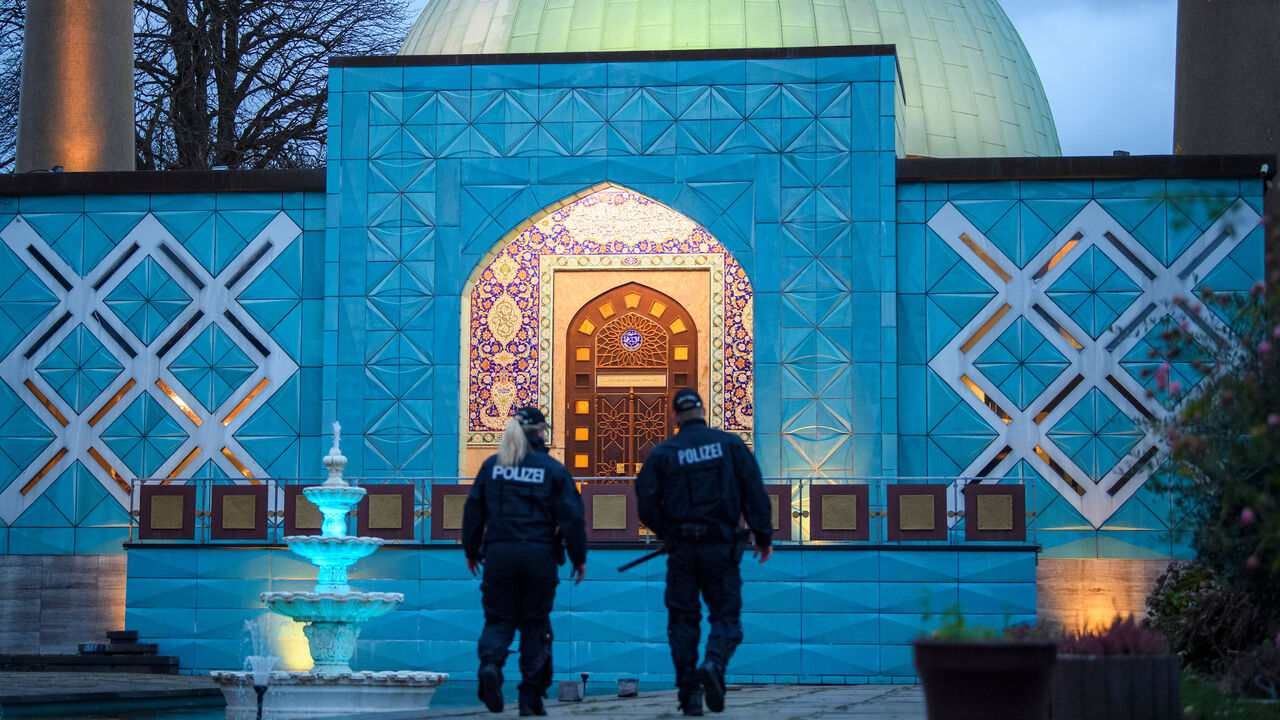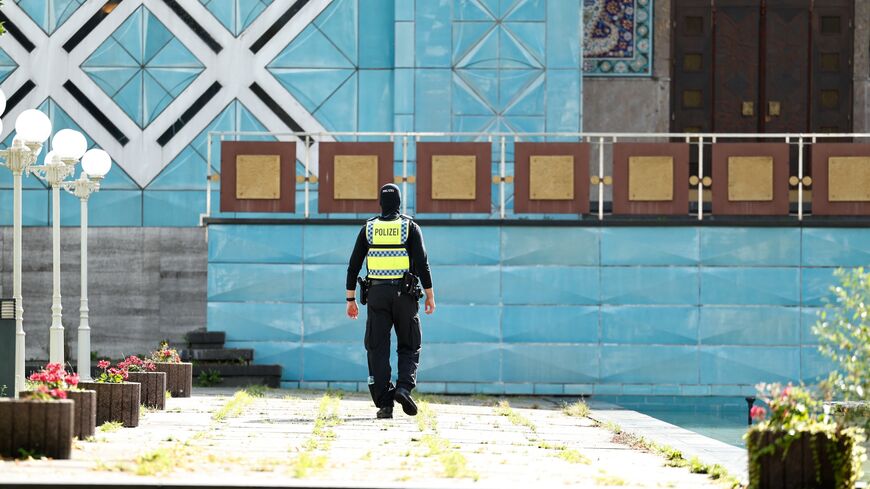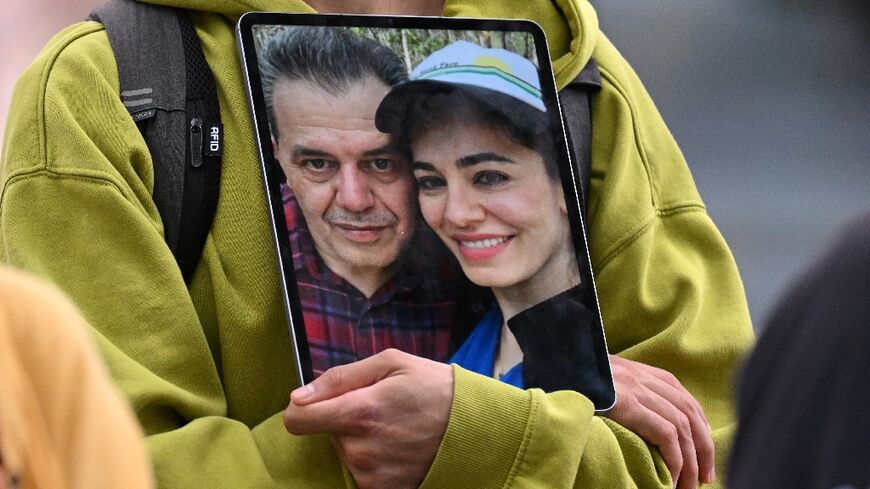Iranian police close German Embassy school in latest row with Berlin
Iranian authorities shut down a German language school on Tuesday in a move widely seen as retaliation for Berlin banning the Hamburg Islamic Center in July.

Iranian police closed a German Embassy-linked language school on Tuesday, forcing the cultural institute to halt operations, according to local reports. The move was widely seen as retaliation for Berlin’s July ban on the Hamburg Islamic Center and five other organizations around Germany.
The Iranian judiciary’s Mizan news agency reported that "two branches of illegal centers affiliated with the German government” were closed by judicial authorities on Tuesday after they “committed numerous illegal acts and extensive financial violations.” Local news outlets published photos of Iranian authorities raiding the complex and removing signage from the building.
In a press statement Tuesday morning, a spokesperson for the German Foreign Ministry said Berlin had summoned the Iranian ambassador, condemning the actions of the Iranian security authorities and saying the institute “is a popular and recognized meeting place” where employees are committed to “strengthening the connection between people in Iran and Germany.”
Established in 1995 by the German Embassy in Iran, Das Deutsche Sprachinstitut Teheran (DSIT), or the German-language institute of Tehran, facilitates German language lessons for students and has provided research and residency fellowships. The Goethe Institut, which has 151 locations in 98 countries and aims to “promote the study of the German language,” had previously operated in Tehran from 1958 to 1987, according to the school’s Iran website.
According to the German Foreign Ministry, DSIT is financed by fees for language courses and exams and currently employs 85 teachers.
The raid comes less than a month after the German Interior Ministry banned the Hamburg Islamic Center over accusations of serving as “outposts” for Tehran’s theocracy and "pursuing radical Islamist goals" while posing as an apolitical religious organization.
Iran's Foreign Ministry summoned German Ambassador to Tehran Hans-Udo Muzel just hours after his government closed the Iran-linked center and all of its affiliated properties across the country.
Tehran called the move a “hostile act” and “obvious case of Islamophobia," and argued that the decision was in line with "an intentional spread of violence and dictatorship," Al-Monitor's Iran correspondent reported at the time.
Berlin said the Hamburg Islamic Center acted as a direct representative to Iran’s Supreme Leader Ayatollah Ali Khamenei. German authorities raided 54 locations across the country in November 2023 suspected of promoting the revolutionary concepts of Iran’s supreme leader and possibly supporting activities of Hezbollah in Germany.
Iran dismissed the accusations, claiming that the center had been "disseminating Islamic teachings, promoting dialogue and religious tolerance and combating extremism."
When announcing the ban, the German Interior Ministry said the Hamburg Islamic Center had long been under observation by the country’s domestic intelligence agency. Yet Interior Minister Nancy Faeser insisted that the closure was not meant to target Islam and Muslims and "does not apply to the peaceful practice of the Shiite religion." Instead, Faeser said the ban was meant to stifle the “Iranian propaganda center in Europe."
German-Iranian relations
Earlier this month, Iran dismissed calls by Germany, France and the United Kingdom to exercise restraint in its threats against Israel after the July 31 assassination of Hamas political leader Ismail Haniyeh in Tehran.
Nasser Kanaani, the Foreign Ministry’s spokesperson, said Tehran condemned the statement as “impudently requiring Iran not to respond to a violation of its sovereignty and territorial integrity.”
Relations between Berlin and Tehran have soured in recent years after Tehran-born Jamshid Sharmahd, who immigrated to Germany in the 1980s, was kidnapped by Iranian security sources in the UAE in July 2020, taken over the border to Oman and transported to Iran for trial. Sharmahd was sentenced to death in 2023 for "corruption on earth."
The Hamburg Islamic Center has filed an appeal against the ban.








